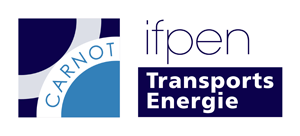 Electrified Mobility
Electrified Mobility
Our networks
European Projects
PHOENICE: TOWARDS A PLUG-IN ZERO-EMISSION HYBRID VEHICLE
Coordinated by IFPEN and conducted with seven industrial and academic partners, the PHOENICE (PHev towards zerO EmissioNs & ultimate ICE efficiency) project, launched in 2021, is aimed at developing a plug-in hybrid vehicle demonstrator with reduced fuel consumption and pollutant emissions. IFPEN will primarily be responsible for the design of the combustion system based on the Swumble™ concept, the design of the after-treatment system, the creation of the engine prototypes and the calibration of the multi-cylinder engine.
PHOENICE will help accelerate the transition towards more environmentally-friendly mobility in terms of air quality and the reduction in greenhouse gas emissions. The project partners are: CRF/FCA (Fiat Group research center), FEV Europe, Johnson Matthey, Marelli Europe, Garrett Motion France, Politecnico di Torino and In Extenso Innovation Croissance.
This project received funding from the European Union’s H2020 research and innovation program through grant agreement 101006841
MODALIS²: BATTERY DESIGN BASED ON NEW MATERIALS
The European MODelling of Advanced LI Storage Systems project was launched in 2019 within the framework of the H2020 program. Led by IFPEN alongside nine partners (Saft, Siemens Digital Industry Software, Siemens Corporate Technologies, Umicore, Solvay, K&S, CRF, Gemmate Technologies and Turin University), Modalis² is aimed at developing a chain of numerical tools making it possible to model and design battery systems using new materials such as alloys with silicon for negative electrodes and solid electrolytes. Modalis² will support the development of advanced battery cells based on modeling and simulation.
This project received funding from the European Union’s H2020 research and innovation program through grant agreement 875193
REFREEDRIVE: TOWARDS AN ELECTRIC MACHINE WITHOUT RARE EARTHS

“The use of rare earths for magnets remains a major constraint for the cost of synchronous reluctance electric machines: with 12 partners, we are working within the context of the H2020 ReFreeDrive European project on a concept for a synchronous reluctance machine capable of operating without rare earths. We are responsible for the design of the electric machine, as well as the control strategy and the integrated inverter, for two electric powertrain applications with a target power of 200 and 75 kW. For the purposes of the project, we are also providing a testing resource to test the different prototypes.”
Gianluca Zito, ReFreeDrive project manager, IFPEN
This project received funding from the European Union’s H2020 research and innovation program through grant agreement 770143
ADVICE: IMPROVING THE ENERGY EFFICIENCY OF HYBRID VEHICLES
The Advice (ADvancing user acceptance of general purpose hybridized Vehicles
by Improved Cost and Efficiency) project is developing three versions of a lower cost hybrid vehicle with increased energy efficiency. Teams from the IFPEN Transports Energie Carnot Institute developed an eco-routing system designed to minimize fuel consumption for a set battery charge at destination, taking into account real-time traffic conditions.
This project received funding from the European Union’s H2020 research and innovation program through grant agreement 724095
DEMOBASE: OPTIMIZATION OF BATTERY SAFETY AND EFFICIENCY

Launched in 2017, the European Demobase (DEsign and MOdelling for improved BAttery Safety and Efficiency) project closed in 2020. It targeted several objectives aimed at supporting the development of electric mobility:
• to reduce development efforts for electric powertrains,
• to improve their efficiency by 20%,
• to optimize their safety.
Led by project coordinator SAFT, the French battery manufacturer, the 11 partners worked on the global optimization of the development process, the ultimate aim being to create an all-electric London taxi-type demonstrator.
For the Demobase project, IFPEN's teams modeled battery safety and developed battery models taking into account thermal runaway on Simcenter Amesim software. They also introduced different experimental tools to IFPEN’s battery test benches, including a high-throughput ageing tool and a Hardware in the Loop system based on a vehicle simulator using Simcenter Amesim
This project received funding from the European Union’s H2020 research and innovation program through grant agreement 769900
COMPETITIVENESS CLUSTERS, CONSORTIUMS AND OTHER NETWORKS
CARA European Cluster for Mobility Solutions
IFPEN is one of the founding members of CARA, the Auvergne-Rhône-Alpes region competitiveness cluster, set up to support changes in urban transport systems and represent the local car and industrial vehicle sector.
"IFPEN is a long-standing partner of CARA and has always played a full role in its governance and activities. Its board representative is vice-chair of the Innovate activity. IFPEN also directs our “Powertrain and drive train” research program”. Through this active participation, IFPEN brings not only its expertise and know-how in numerous fields (powertrains, chemistry, software, data analysis, etc.), but also access to its Solaize site, where we regularly host think tanks and international delegations. We have built up a relationship of trust and proximity, based on the proactive pooling of our expertise."
Thomas Prieur, Managing Director, CARA
NEXTMOVE: FOR MORE ENVIRONMENTALLY-FRIENDLY TRANSPORT
IFPEN is one of the founding members of the NextMove competitiveness cluster, which leads an industrial and scientific ecosystem dedicated to issues surrounding the mobility of the future. It is also one of its most active members.
“IFPEN has played a major role in NextMove since the creation of Mov’eo in 2006, particularly through the presence of its experts in our communities: “Powertrain and energy management”, “Smart mobility solutions”, etc. The role of these communities is essential, since they define the strategic vision of each theme, foster the emergence of projects and support those leading them. IFPEN also plays a role in our governance as a member of the board of directors, thereby contributing to the evolution of our innovation strategies. For our part, we work closely with some of the start-ups in IFPEN’s portfolio, and support CARNAUTO, a consortium of nine Carnot institutes led by IFPEN dedicated to intermediate-sized companies, SMEs and micro-companies in the vehicle and mobility sector.”
Marc Charlet, Managing Director, NextMove
COMUTES² Consortium
Driven by teams from IFPEN, the COnsortium pour la Mutualisation de Tests Electriques sur Systèmes de Stockage (COMUTES², or consortium for the pooling of electric tests on storage systems), made up of six experimental laboratories working on batteries (IFPEN, the CEA (French Alternative Energies and Atomic Energy Commission), Gustave Eiffel University, IMS, UTC and EIGSI), was created at the end of 2018. Objective: to bring together a group of researchers to set up battery test campaigns open to outside members, interested in their results and prepared to contribute to their funding.
“The study of battery aging, particularly in order to calibrate behavioral models, requires access to a large volume of test data covering different temperature and stress conditions. Generating these data requires the long-term mobilization of numerous testing resources. By pooling these resources and sharing costs, the consortium’s members are capable of addressing these challenges quickly and efficiently. The original aspect of COMUTES² also lies in its innovative format, the brainchild of the six founding partners boasting more than ten years’ shared experience with the Simstock (Ademe), Simcal (ANR) and Mobicus (FUI) projects. We are collectively inventing a new approach to working together, hinged around the joint ownership of test results between researchers and members. In September 2020, the COMUTES² consortium launched its first campaign dedicated to the cold aging of Li-ion batteries with the participation of five members: VALEO, EDF, DGA (the French Defense Procurement Agency) and Hutchinson and Siemens.”
Julien Bernard, Battery project manager, IFPEN
RS2E network
The electrochemical energy storage network (RS2E) brings together public and private players to work on problems related to different energy storage solutions, for stationary or vehicle applications.
« Through our participation in the RS2E network, we are able to consolidate our research in the field of batteries, particularly by:
- linking our developments to industrial needs,
- identifying research partners,
- setting up collaborative projects.
It was in the context of the RS2E network that we conducted joint PhD research with Ineris on thermal runaway for new and old Li-ion batteries. The resulting thesis attracted the interest of industrial players, who asked us to join the H2020 Demobase project. »
Julien Bernard, Battery project manager, IFPEN
Doctibike
IFPEN is working in partnership with start-up company Doctibike on electric bicycle battery recycling within the framework of the Energyk project , financed by the Auvergne-Rhône-Alpes region. The aim of Energyk is to develop battery packs for electric bicycles that can be recycled, reused and repaired.












